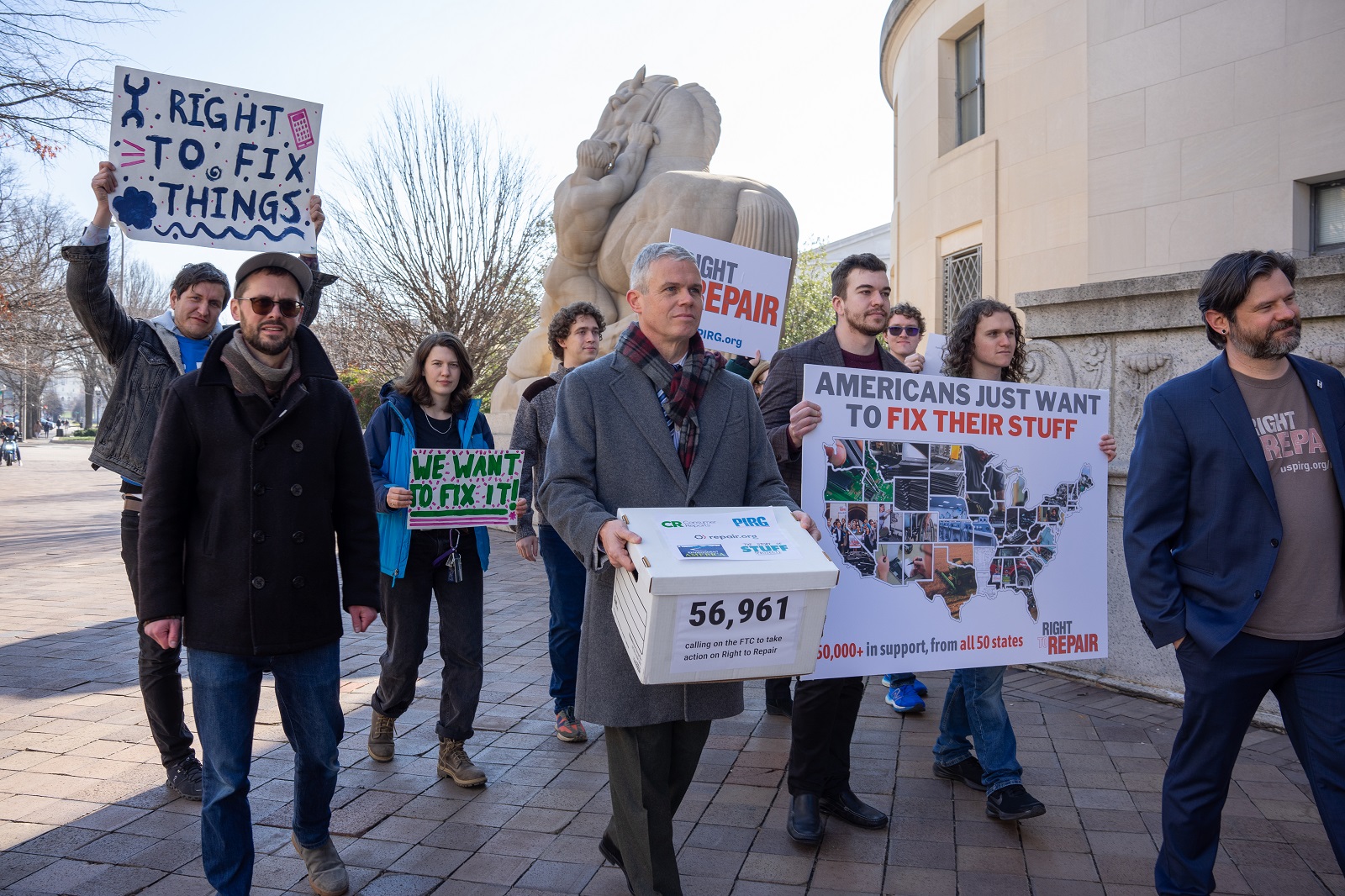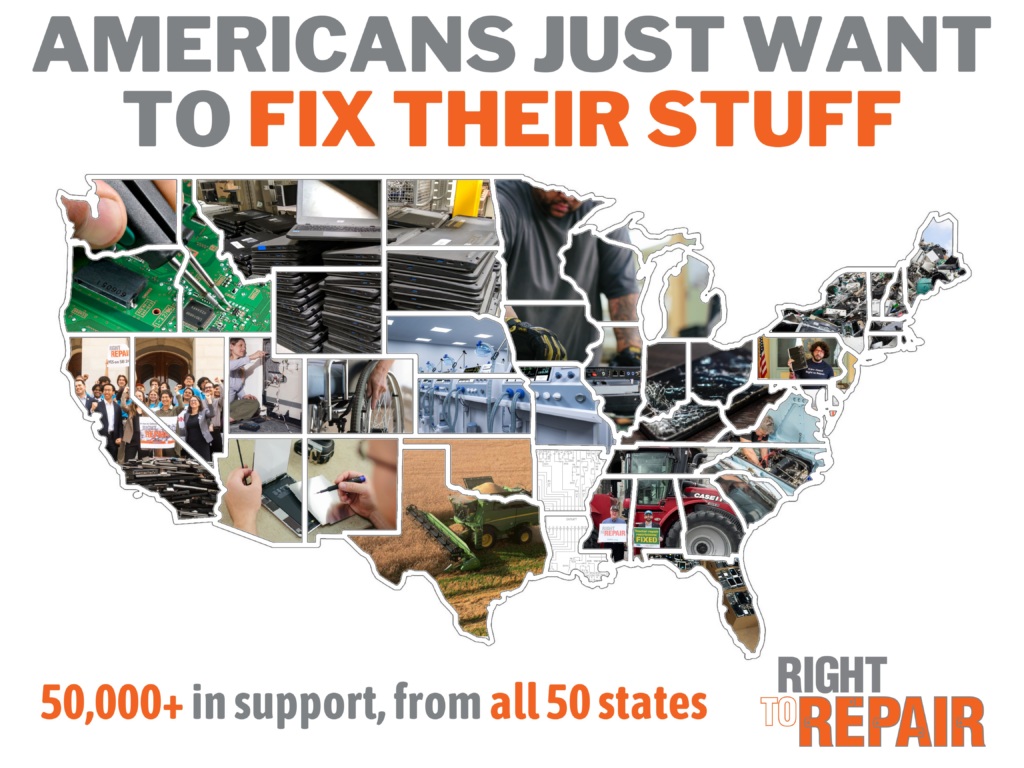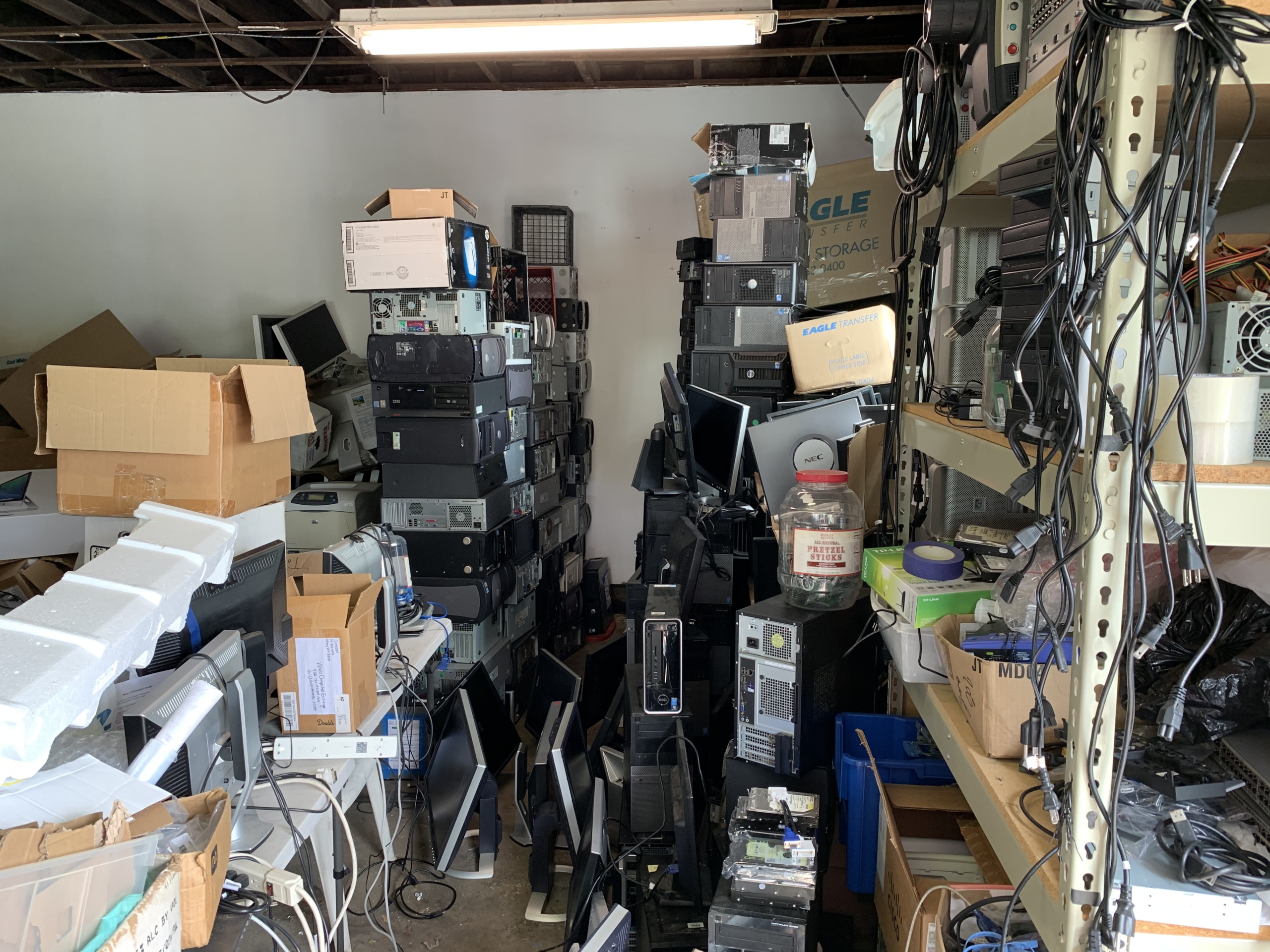
Giving the FTC an earful on Right to Repair
PIRG, allies, delivered 60,832 signatures, including support from 766 lawmakers, businesses and organizations to FTC supporting action on repair

The Right to Repair is based on a simple idea: Americans should be able to fix our stuff. The Federal Trade Commission (FTC), which has been engaged on Right to Repair for the last five years, closed a 30-day public comment period on the topic on Feb. 2.
PIRG and our allies organized supporters from across the country to submit comments urging the agency to support repair. Here are some highlights of our collective efforts:

Photo by Yazan Aboushi | TPIN

Photo by Fairphone/Closing The Loop | CC-BY-SA-2.0

Photo by Colorado | Public Domain
1of 3
In addition, Repair.org acted as a conduit for 7,853 people to submit substantive comments on the petition. Thousands more people sent comments directly to the FTC.
What we asked the FTC to do on Right to Repair
The recent public comment period was a chance for Americans to weigh in on a formal request made by U.S. PIRG Education Fund and iFixit in November for the FTC to initiate a rulemaking on Right to Repair. We identified a few important steps the FTC should take:
- Create a Repair Score program. Develop, administer and enforce a technical standard for scoring devices based on how repairable they are. For more, see our “Failing the Fix” report.
- Require manufacturers to provide a minimum standard of support for repairs, including publishing repair documentation and schematics, and access to commonly-replaced spare parts.
- Protect repair choice. Ensure that consumers and independent businesses can provide repairs for modern electronics.
In the request for a rulemaking, we argued that the FTC Act, the 1914 law that created the FTC, allows the agency to create new rules to protect repair.
This section of federal law states that: “unfair or deceptive acts or practices in or affecting commerce, are hereby declared unlawful,” and “The Commission is hereby empowered and directed to prevent persons, partnerships, or corporations … from using unfair methods of competition in or affecting commerce and unfair or deceptive acts or practices in or affecting commerce.” In 2022, the FTC reasserted its right to issue new rules under this section.
We argue that selling someone something we can’t fix, or can’t be fixed by anyone except for brand-authorized service providers, is a deceptive and unfair method of competition.
A lot of people agree with that.
Everyone, everywhere just wants to fix their stuff
As supportive comments came pouring in, we wanted to highlight how people from all walks of life, and from every corner of the country, had personal stories about the challenges we face trying to fix our stuff.
Some examples:
“I wish things were made like they used to be and you didn’t have to buy a new product every year. I still use my grandparents’ appliances and I’ve not had any trouble with it. Only new devices I have to rebuy…” wrote Sherry from West Virginia.
“Currently, I’m holding a $1k+ iPhone that I can’t get services anywhere but an Apple Store, where I will be constantly upsold to the latest version, one that is not yet three years newer than the one I have,” wrote Kurt from Oklahoma.
To highlight the breadth of these stories, we built this interactive map with an example from each state:

Photo by TPIN Staff | TPIN
What’s next for the FTC on Right to Repair?
Over the last few years, the FTC has been getting more involved with the Right to Repair. Issuing new rules is one way for the agency to fulfill its promise to expand its role in protecting repair.
- In 2019, the FTC hosted an investigation into Right to Repair, which included a series of panels (one of which I spoke on).
- Congress required the FTC to report back on its repair investigation. In May 2021, the agency released its “Nixing the Fix” findings. This landmark report found that repair is being unfairly restricted and that manufacturers had “scant evidence” to support their conduct.
- After President Joe Biden called on the FTC to protect the Right to Repair in an executive order, the FTC voted unanimously in July 2021 to step up enforcement and work with states to support new laws.
- The FTC settled with three manufacturers — Harley Davidson, Westinghouse and Weber grills — who violated Right to Repair rules for warranties.
- FTC staff began supporting state efforts on Right to Repair, including testifying in California for that state’s successful bill in 2023.
Because of the history of pro-repair action, we are hopeful that the commission will decide to implement new regulations. Additionally, the public support we delivered to the agency could result in other FTC actions and investigations.
In the meantime, we will continue to advance Right to Repair on as many fronts as we can. Because people should be able to fix their stuff.
Topics
Authors
Nathan Proctor
Senior Director, Campaign for the Right to Repair, PIRG
Nathan leads U.S. PIRG’s Right to Repair campaign, working to pass legislation that will prevent companies from blocking consumers’ ability to fix their own electronics. Nathan lives in Arlington, Massachusetts, with his wife and two children.
Find Out More

Why Microsoft extended Windows 10 support for schools for $1

Why do we toss working devices?

6 surprising facts from the UN’s 2024 electronic waste report

